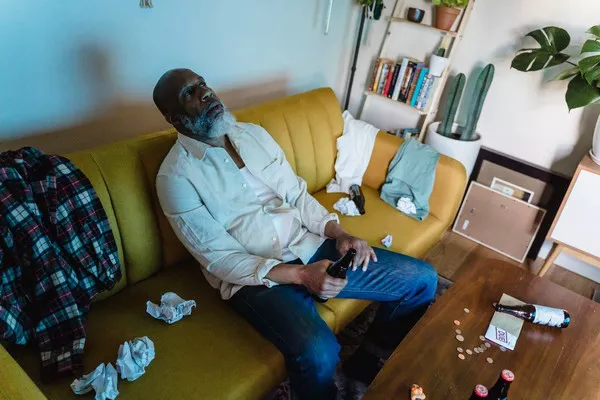The Substance Abuse and Mental Health Services Administration (SAMHSA) has issued fresh advisory guidelines aimed at assisting physicians in identifying mental health symptoms associated with long COVID. These guidelines, released in June as part of the Biden administration’s comprehensive action plan for long COVID research, offer a framework to enhance the understanding of mental health symptoms—such as anxiety, fatigue, obsessive-compulsive disorder, and post-traumatic stress disorder (PTSD)—that may arise from this condition.
Dr. Serena S. Spudich, a professor of neurology at Yale School of Medicine, emphasized the significance of these guidelines, stating that they validate and categorize conditions related to long COVID while providing essential guidance for their management.
Molly Sanborn, a Public Health Analyst at SAMHSA, stressed the importance of prioritizing the identification and treatment of individuals grappling with the mental and behavioral health symptoms of long COVID, emphasizing their debilitating impact.
Long COVID symptoms often blur the lines between psychiatric, psychological, and neurological domains. Conditions such as depression and cognitive impairments, including brain fog and memory issues, are common among survivors. In a meta-analysis from October 2021, published in the Journal of the American Medical Association (JAMA), one in three survivors were diagnosed with generalized anxiety disorders, and one in five with depression. Cognitive function, including the ability to concentrate, suffered as well, underscoring the profound implications of cognitive challenges on mental health.
The SAMHSA guidance explicitly urges healthcare providers, particularly primary care physicians, to actively seek out and document symptoms or potential symptoms of long COVID in their patients. It also highlights the need for a multidisciplinary approach to managing long COVID, given the involvement of multiple organ systems, with primary care physicians playing a pivotal role in patient care.
The guidance acknowledges the potential for appointment backlogs in specialties such as neuropsychology, behavioral neurology, and psychiatry, and recommends integrating these specialists into primary care settings to expedite diagnosis and treatment.
SAMHSA’s guidance underscores how social determinants of health exacerbate long COVID disparities, particularly in vulnerable populations. Racial and ethnic minorities, including Black, Latino, and American Indian/Alaskan Native communities, experience higher levels of long COVID due to structural, social, and health inequities. Access to mental health care poses additional barriers for these groups.
While more research is needed, experts agree that recognizing the impact of long COVID on mental health is a crucial first step in providing comprehensive care to affected individuals. Validation of their symptoms and increased awareness can help prevent patients from falling through the cracks, according to Dr. Spudich.



























